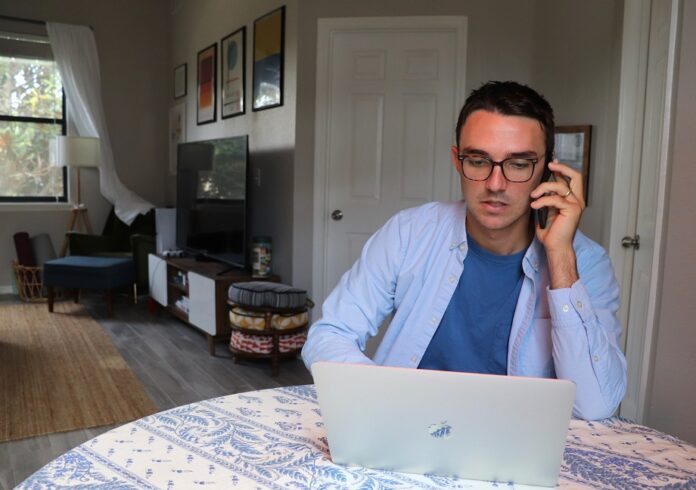Working from home can be an attractive way to save money, avoid traffic, and have more time to spend with your family. However, by avoiding that stuffy suit, boring small talk, and agonizing commute, you are also exposing yourself to several unique security risks.
Home Office Security
Staying secure while working from home requires a two-pronged approach that maintains both physical and digital security. Let’s dive in.
The Importance of Physical Security in a Workspace
One of the main benefits of working in a typical office is that it comes with its own security setup. Most companies will have policies on the physical safety of their buildings. Typically, the only people allowed in the office are those who work there. However, unless you never have visitors, your home office will not have the same level of protection.
Is it really a big deal if a guest reads over your shoulder while you work? It sure is; you could find yourself in a lot of trouble should that person see something they shouldn’t, especially if they tell others about it. Anything from accidentally releasing personal and confidential information to accusations of insider trading can and will happen if you don’t take the time to secure your workspace.
The basic steps that you should take to secure your home office are:
- Leave the room or keep your desk and screen clear whenever you have guests.
- Physically angle your desk and computer monitors away from any windows or open spaces to avoid the accidental display of information.
- Encrypt your hard drives, and secure them with a high-quality password.
If you don’t already have them, you should also invest in a strong lock for your home office and an alarm system that will deter any would-be intruders.
Online Security Is Crucial
Protecting your files from theft and nosey people is only a tiny fraction of home office security. Most of your work is likely to take place online, and it’s here on the internet that the actual threats lurk.
The ransomware, viruses, and scammers that live on the web are scary, but protecting yourself is not as hard as it seems. Here are some quick tips for staying secure online so you can confidently work from home with less risk:
- Anonymize and protect your internet traffic
Working from home doesn’t necessarily mean working from your house. When working at your local coffee shop or public space, think twice before connecting to the Wi-Fi. Most public Wi-Fi networks are unsecured, meaning anyone can intercept your web traffic and spy on your activities. Bank login details, client information, private conversations – all will be freely available to anyone if you’re not careful. If you have no choice but to connect to an unsecured network, use a VPN or a proxy from a reputable proxy service provider. These tools will allow you to anonymize your internet activity and protect it from anyone with malicious intent.
- Don’t click on strange links
If you value the integrity of your computer, never click on a link without being absolutely sure where it will send you. Some websites are designed to infect your computer with malware or steal your data, and scammers will pose as people you trust to trick you into giving up personal info. So, you should always be selective about which links you click. If you’ve mulled it over and are still unsure, try using a link-checking website to determine whether it’s safe.
- Trust no one
Not everyone on the internet is out to get you, but assuming they are will pay off in the long run. Be careful who you talk to, especially when discussing work, and don’t reveal personal or confidential information. Even random facts about your life, such as the names of family members or pets, can be used to reset passwords or gain access to accounts. As the saying goes, once it’s on the internet, it’s there forever.
Conclusion
To conclude, working from home is a great way to increase productivity and make the most of your time. However, it can also cause difficulties if you’re unprepared for the security challenges it brings. Hopefully, these tips will help you put a proper home office security plan into place, so you can keep working without worry.


